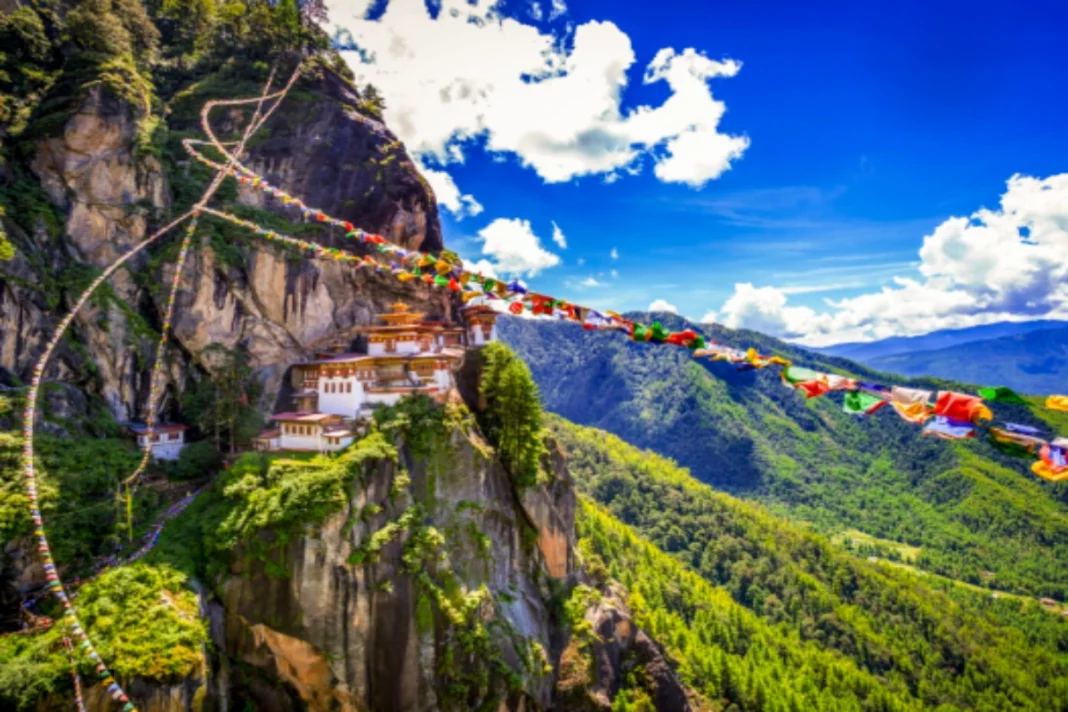Bhutan: It is legal to pray and practise one’s own religion in the majority of nations. Every religion’s adherents construct their own houses of worship for prayer. However, thousands of people live in a neighbouring country of India that practices Islam, but they are not allowed to construct mosques.
Gross National Happiness and Bhutan’s Unique Development Metric
Gross National Happiness (GNH) is used to gauge development in Bhutan, also referred to as the “Land of the Thunder Dragon.” Bhutan’s primary and official religion is Buddhism. This religion has been a part of Bhutan’s cultural and religious legacy. There are four major religious groups in this area: Christians, Muslims, Hindus, and Bon.
There are 7.5 lakh people living in Bhutan. The majority of people in this area practise Buddhism. Seventy-five percent of the people living here are Buddhists. Hindus make up 22.6% of the population overall at the same time. Bhutan contains both Buddhist and Hindu temples and monasteries since it is home to the largest concentration of Buddhists and Hindus.
Bhutan’s Unique Status
Approximately 7,000 people practise Islam in Bhutan, a country renowned for its natural beauty worldwide. The only nation next to India without a single mosque is Bhutan, which is ranked third in the globe. Other than Bhutan, neither Monaco nor Slovakia have any mosques. Bhutanese Muslims gather in a small Jakar chamber with non-Buddhists to pray.
On the border between Bhutan and India, near Jaigaon, a mosque was constructed in 2008 by the Muslim minority of Bhutan. Bhutan has one percent Roman Catholics, the most of whom reside in the south of the nation. In 1627, Bhutan saw the arrival of Christianity as two Portuguese men named Estévão Casella and João Cabral made an attempt to create a Jesuit mission in Tibet.
DON'T MISS
Religious Freedom in Bhutan
Every citizen of Bhutan is granted complete religious freedom, however religious conversion of any type is strictly prohibited by the country’s Constitution. The Open Doors Mission claims that this keeps Catholics from converting. Bhutanese citizens are not allowed to construct any non-Buddhist religious structures or hold non-Buddhist holidays, according to government regulations.
After Buddhism, Hinduism is the second most popular religion in Bhutan. That explains why southern Bhutan is home to a large number of Hindu temples. In several regions of the nation, Hindu Vedic institutions impart knowledge of Hindu customs and cultures. Hindus in Bhutan also commemorate a number of Hindu holidays, such as Dussehra. Bhutan observes this day as a public holiday.
Vajrayana Buddhism in Bhutan
The Vajrayana or Mahayana branch of Buddhism is practiced by the people of Bhutan. The vast majority of Ngalop Buddhists are descendants of Tibetan immigrants. They are residents of Bhutan’s mid-west area. Bhutan’s eastern region is home to the Sharchops, the nation’s indigenous people. Buddhism is also evident in the nation’s monuments, buildings, and prayer flags.
Bon is a native Tibetan religion practiced in rural areas that honours the natural world. This was the predominant religion in Bhutan before to the arrival of Buddhism. Many academics and members of Bhutan’s upper class still adhere to it today. Bonism involves the worship of nature and the sacrifice of animals. As a result, a lot of bodies of water as well as various animals—dragons foremost—are revered.
Keep watching our YouTube Channel ‘DNP INDIA’. Also, please subscribe and follow us on FACEBOOK, INSTAGRAM, and TWITTER



